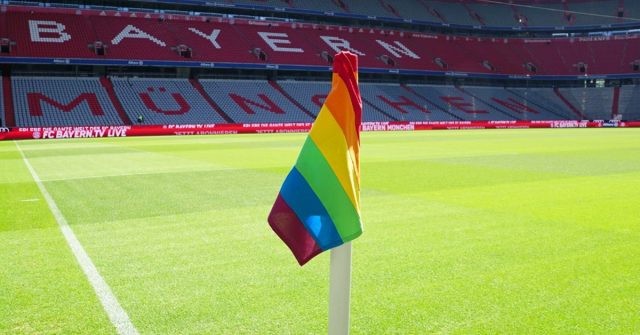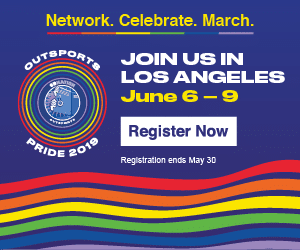
FC Bayern Munich captured their seventh consecutive Bundesliga championship on Saturday in dominating fashion, but that wasn’t the club’s only victory. The match also represented a win for the team’s commitment to erasing homophobia.
FC Bayern cooperated with its LGBTQ fan club, Queerpass Bayern, to install rainbow corner flags on the pitch at Allianz Arena during the team’s 5-1 title-clinching victory over Eintracht Frankfurt.
The new corner flair even got a thumbs up from Heidi Klum.
Hoffentlich hat @heidiklum heute ein Foto für uns… #FCBSGE #packmas #FCBayern pic.twitter.com/oj2ltaxn3u
— #MEIS7ER (@FCBayern) May 18, 2019
“With this campaign, together with our ‘Queerpass Bayern’ fan club, we want to send a clear signal for tolerance and diversity, against racism and homophobia,” said Bayern Munich CEO Karl-Heinz Rummenigge.
❤️ #MiaSanMia pic.twitter.com/XWkvaUk1Up
— #MEIS7ER (@FCBayernEN) May 18, 2019
The symbolic addition is just the latest event in FC Bayern’s work with Queerpass Bayern to make the club’s culture more inclusive.
“It’s a wonderful signal that FC Bayern are positioning themselves as a world club with its values at our side. It stands for tolerance and against discrimination of any kind because the rainbow flag isn’t only a symbol of the gay movement alone,” said Queerpass Bayern chairman Marcus Janke.
Since its founding in 2006, Queerpass Bayern has hosted Rainbow Refugees and underprivileged children at club matches and hosted pro-LGBTQ social events for the fanbase.
They have regularly participated in the Kurt Landauer tournament, a fan competition named for former FC Bayern president and Holocaust survivor Kurt Landauer. The tournament is meant to promote tolerance and inclusivity within the sport and its supporters.
Bayern Munich joined the French LPF in showcasing solidarity with the LGBTQ community last weekend in accordance with Friday’s International Day against Homophobia, Transphobia and Biphobia.
The renewed effort to combat LGBTQ discrimination in European soccer is a welcomed one, and the inclusion of LGBTQ symbols looks to only be the start.
“We expect more visibility, educational work and an important contribution to the removal of taboos,” said Junke.








